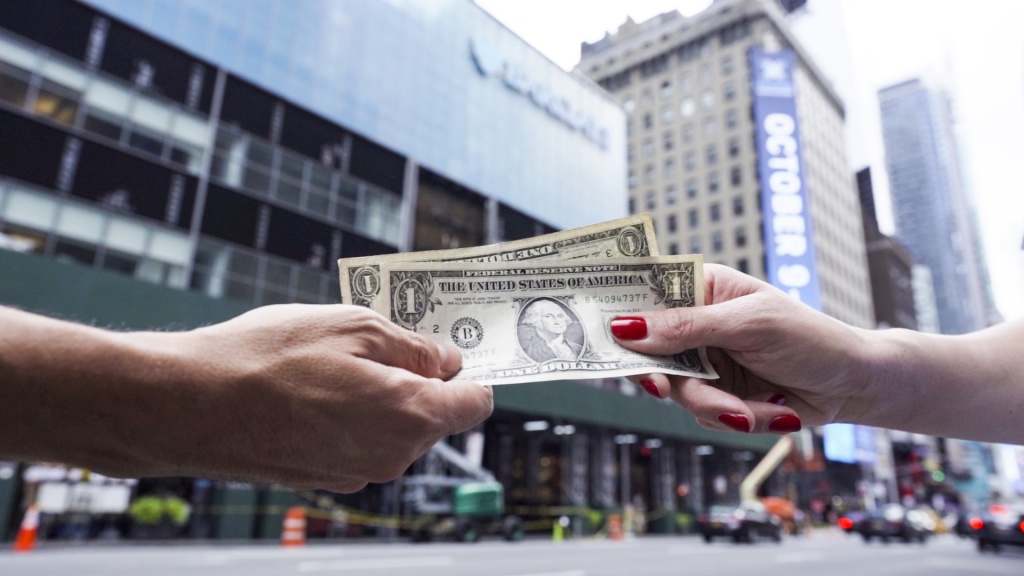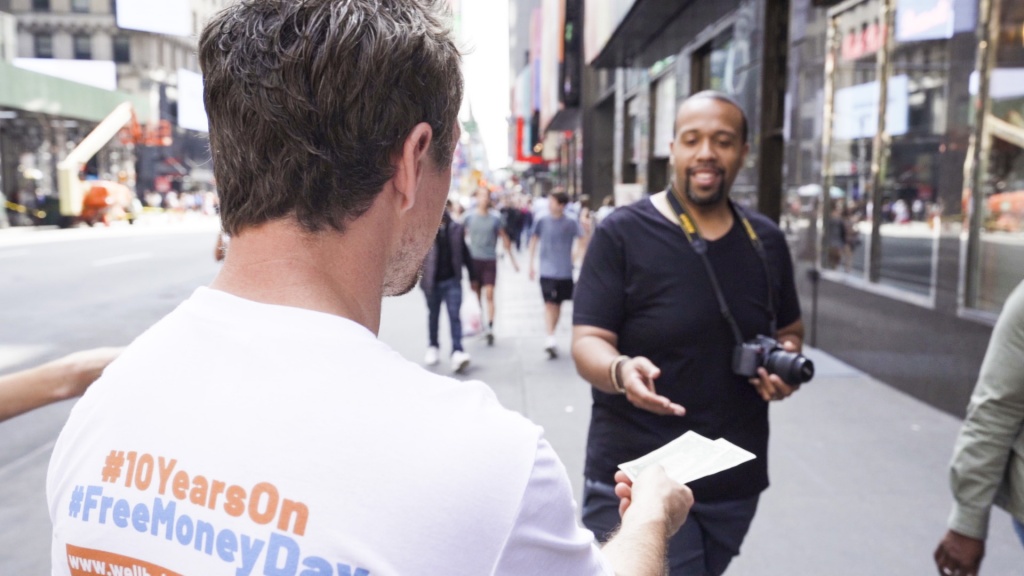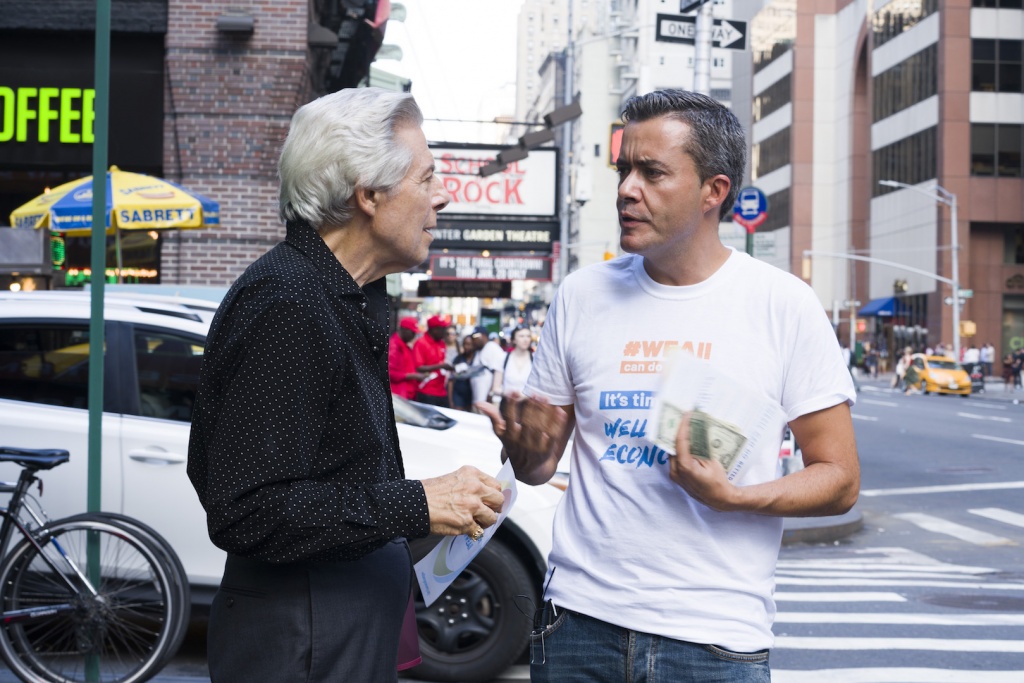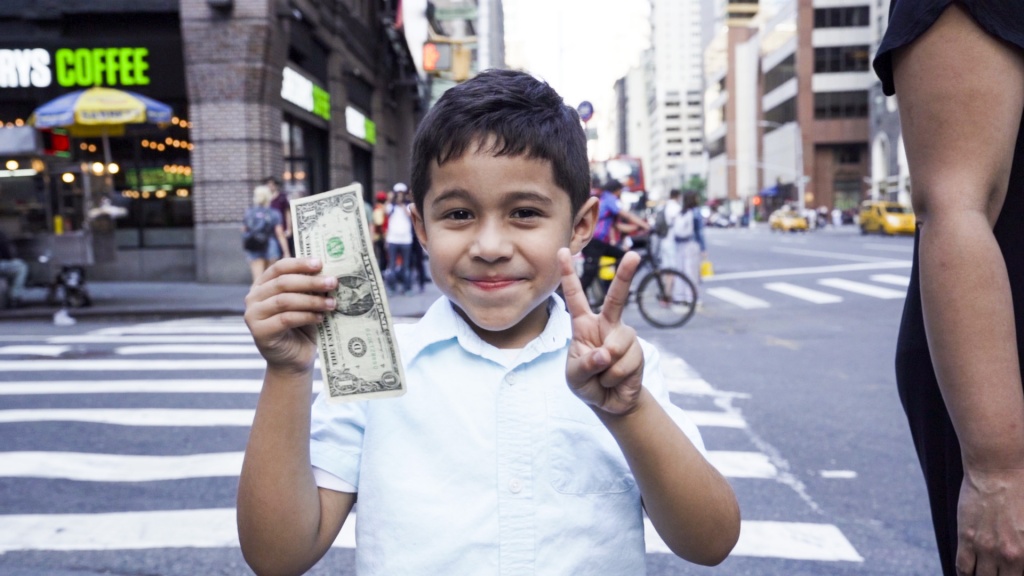Blog post by Lisa Hough-Stewart
What happens when you give away free money to strangers?
WEAll teamed up with our members the Post Growth Institute and Finance Watch to do just that.
On September 15, 2018, ten years to the day from the collapse of Lehman Brothers (which triggered the financial crash), a small group of us stood opposite the old Lehman Brothers building on 7th Avenue in New York, and dished out cash.

This stunt was part of the Change Finance coalition’s #10yearson campaign. The purpose was simple: to provoke people to think about our relationship with money and what the economy is for, encouraging sharing and collaboration instead of greed. To emphasize the point, we invited everyone to take two dollars – one to keep, and one to pass on to someone else.
In preparing for this stunt, I gave plenty of thought to our messages, the logistics, the risks – and not much thought to how people would react. In fact, I assumed that the $500 we had to give away would disappear within half an hour, with people grabbing bills as quickly as they could.
The reality was more complex, and it said a lot about our relationship with money: exactly what we were there to explore! At first, almost everyone was wary and confused, and many would not engage with us at all, refusing to believe anyone would just hand out money with no catch.

We didn’t get a lot of outright negativity, but a lot of people were quick to put up their hands and say, “I’ve got enough”. A nice sentiment, as our economy certainly needs a better concept of “enough”: it was pretty clear, though, that this response was defensive. People did not want to be seen to be in need.
Our pitch went along the lines of “It’s free money day! You get a dollar, and you pass one on to someone else”. The last part of the sentence was transformational. We could see the penny drop, as people who had been quickening their pace to avoid us suddenly smiled, slowed down and started to engage. The sharing element connected with people instantly, and that’s when they wanted to know more about what we were doing.

My favourite part was the people who really got into the spirit of it, eager to give away their dollar straight away – a few even joined our team for a while! Kids were particularly thrilled not just to get a buck but to hand out money to others. I lost count of the number of people who said we made their day.
It didn’t take half an hour to get rid of $500 on a Saturday afternoon in New York City. It took almost two hours. In those two hours, we had conversations with strangers lasting from a few seconds to fifteen or twenty minutes. We shared ideas, laughter and hugs with these strangers as we connected over the idea that we all can do better, and build an economy that works for people and planet.

- Free Money Day is a global event in which people hand out money to strangers in order to raise awareness and start conversations about the benefits of economies based on sharing. http://www.freemoneyday.org/
- Finance Watch is an independent, non-profit, publicinterest association dedicated to making finance work for society. It was created in June 2011 to be a citizen’s counterweight to the lobbying of the financial industry and conducts technical and policy advocacy in favour of financial regulations that will make finance serve society. It now expands its mission to include work on campaigns that demand systemic change, and coordinates the Change Finance coalition.
- The #10YearsOn campaign has involved over 60 organisations to reimagine the financial system. Its demands are focused on a financial system that serves people and planet, that is democratically governed, and that is stable.
Images by Create The Remarkable
the discussion?
Let us know what
you would like
to write about!
